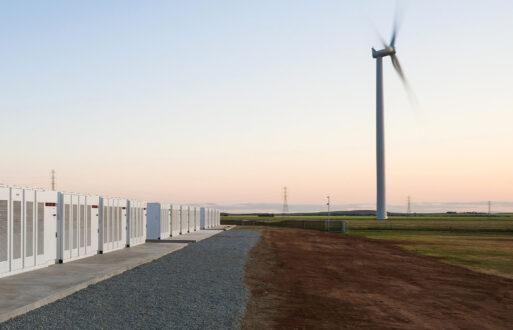
Value
Many years ago, I attended an annual goal kick-off meeting with a large public power company in the great state of Nebraska. We gathered to discuss and establish performance metrics for the upcoming year.
At the outset of the meeting, one of the executives opened by stating why he felt so passionate about public power and the utility’s mission.
“Growing up as a young child in western Nebraska, we did not have power in my house. It was an experience that I will never forget. I come to work daily to ensure our customers can always rely on us to deliver electricity.”
Talk about a great way to start a meeting!
Those words rang true that morning and still resonate with me today.
Sometimes, in the hustle and bustle of life, we can lose focus on the core reason why we choose to serve a higher purpose other than ourselves.
In the energy industry, regardless of your role, we all contribute to providing reliable power to our society safely and cheaply.
People often say, “You do not know what you have until you lose it.”
I disagree.
We do know the value of something before we build it. Otherwise, we would have never built it in the first place.
However, in pursuing progress and goals, we often lose appreciation for the value of what we built – until we experience not having it.
2020 was a year in which we lost many things we once took for granted. But, we did relearn the value of things like family, health, and a thriving economy.
In 2021, we needed to value reliability and resilience to make informed investment decisions and the benefits as accurately as the costs.
Author and poet Criss Jami once said, “Feel what it’s like to starve, and I guarantee that you’ll forever think twice before wasting food.”
Reliability & Resilience: What’s the Difference?
-
Reliability
“…the outcome that all utilities continually strive for. It’s the result.”
Reliability is about planning, operating, and sustaining the electricity supply to provide an effective, safe, and reliable flow of electricity. For our customers, that means the internet works, the heat & air conditioning function, the lights come on, and industries continue to hum around the clock.
Reliability is very well established within the electricity industry, and utilities and organized markets are responsible for several federal and industry requirements that ensure we maintain reliable operations.
But are we properly planning for shifts and disturbances for which there are no standards? Will we easily resist and recover from major disasters, organized attacks, or any mixture of events that we have never experienced?
The answers to these questions define resiliency.
-
Resiliency
“…the ability of a utility to withstand certain failures in the pursuit of reliability and yet, deliver for their customers.”
Resilience has several dimensions, and no norm suits them all.
Resilience is directly related to the principle of reliability. If you are not reliable at first, you will not be resilient. Resiliency entails planning for, working through, and recovering from significant disturbances, regardless of the cause.
It is about our capacity to survive events that are extreme or prolonged.
While some of these risks are considered in conventional reliability planning, today’s threats constantly change, and reliability standards may not keep pace with the associated regulatory requirements.
Valuing Reliability & Resiliency
Long-term, widespread power interruptions (LDWIs) last days, weeks, or longer and are frequently caused by severe weather, impacting entire utility service areas or broader regions.
The risks of long-term, widespread power interruptions (LDWIs) are problematic for U.S. regulators and stakeholders. For example, a former BPA Administrator, Randy Hardy, began ringing the alarm of the impending Pacific Northwest Capacity shortage in 2019. In addition, CAISO CEO Elliott Mainzer recently told RTO Insider, “Without question, resource adequacy is job No. 1 for California.”
WECC recently warned the resource adequacy issue would only worsen as the region increasingly relies upon renewable resources.
The recent hacking of top federal agencies provides new concerns about future grid disruptions. Those making costly investments require accurate information to avoid such outages and expedite swift recovery.
Through six different case studies, a recent report by Berkeley Lab addressed the following five questions with significant policy and long-term planning implications for reducing power system vulnerabilities.
Question #1
How do utilities assess the costs of system damage caused by extreme weather and the costs of recovering from this damage?
- Finding: Utilities conducted detailed assessments of physical impacts on their systems. However, the cost categories are not reported across utilities consistently, which allows for easy comparison.
Question #2
How do utilities estimate customer costs of past power interruptions?
- Finding: Utilities do not monetize these impacts.
Question #3
How do utilities or others estimate the costs and benefits of investments to reduce power system vulnerabilities to future extreme weather events?
- Finding: The costs of preventive investments can be estimated with reasonable accuracy, but the economic benefits are very uncertain. There is little or no evidence that avoided societal impacts other than customer costs are formally included in cost-benefit analyses.
Question #4
How do utilities and regulators use the concept of resilience in economic assessments of extreme weather impacts and the value of preventive investments?
- Finding: Utilities and regulators used “resilience” extensively in two of the six cases studied, less extensively in two others, and very little in the remaining two. However, what has changed from historical norms is the severity of extreme weather consequences for the power system has increased; therefore, the scale and cost of investments to address these risks have also increased.
Question #5
How do regulatory processes influence utilities’ economic analysis related to power interruptions?
- Finding: Laws, regulations, and regulatory practices can significantly influence utilities’ preparation for and response to LDWIs.
The Berkeley Labs report indicated that further research would benefit utilities and regulators dealing with risks associated with LDWIs. Topics for additional analysis include:
- Assessing the value of consistent data collection on historic, extreme electric power-related events
- Improve the economic analysis of impacts from LDWIs
- Determine what the factors are that influence regulatory/utility willingness to incorporate the economic information associated with LDWIs into planning and other processes
Economic Growth
A reliable and resilient power system has been the kernel of our economic growth and increases in our standard of living since the end of World War II. While most people today have never experienced life without electricity, we can all reflect on a time when we did not enjoy the benefits of today’s technological advances.
All are brought to us by a reliable supply of electric power.
As we pivot into a year of recovery, assigning a proper dollar value to reliability and resilience will be the primary focus for the energy industry. Failure to do so will impair our economic recovery and public policy goals.
The pandemic left our economy in tatters and severely rattled the general psyche of our country. The road to recovery will take time, and the foundational block will be a reliable and resilient bulk power system.
In a way, reliability and resilience are a bit like trust.
They’re difficult to define.
But losing them results in adverse impacts that are easy to describe.







